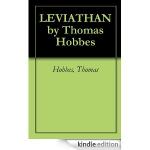
|
| Name: _________________________ | Period: ___________________ |
This test consists of 15 multiple choice questions and 5 short answer questions.
Multiple Choice Questions
1. What does Hobbes call a dominion acquired by conquest?
(a) Impoversihed
(b) Democratic
(c) Despotical
(d) Natural
2. Why does Hobbes say that people attribute the unknown to ghosts, spirits, or other things that can never exist?
(a) They have had experience with seances.
(b) They believe in astrology.
(c) They have experienced the supernatural.
(d) They do not know how to think logically.
3. What kinds of questions does Hobbes say people have little interest in?
(a) things that have to do with the supernatural
(b) things that have no known answers
(c) things that involve faith
(d) things that have absolute answers like math and science
4. What is the sovereign's right in legal matters?
(a) the right to judge all controversies between his people
(b) the right to confiscate property when two or more subjects cannot get along
(c) the right to deny legal process to anyone he shooces
(d) the right to make decisions basked on his mood
5. What does Hobbes identify as three basic human fears?
(a) fear of work, being social, and talking too much
(b) fear of the dark, the weather, and wild animals
(c) fear of being robbed, raped, or ousted from their homes
(d) fear of snakes, spideers, and scorpions
6. What is the first right of a sovereign power?
(a) the right to live in a palace
(b) the right to own slaves
(c) the right to keep changing the laws to its advantage
(d) the right to remain in power
7. How does Hobbes classify a person who speaks for himself?
(a) As a diplomat
(b) As a boaster
(c) As a politician
(d) As an author
8. What does Hobbes call reasoning with oneself?
(a) Insanity
(b) Marking
(c) Foolish
(d) Impossible
9. How does Hobbes classify discourse that cannot be proven?
(a) theorems
(b) attitudes
(c) scientific
(d) opinion
10. What seems to be a contradiction in Hobbes' attitude toward protest?
(a) People can protest but they cannot organize.
(b) People are legally able to protest a political system, but not against the sovereign.
(c) People can legally protest but they can only do it openly.
(d) People cannot protest but they can camgaign for change.
11. When does Hobbes suggest it is not logical to follow the Golden Rule?
(a) when no one else is following it
(b) during a natural disaster
(c) in times of war
(d) when there are no other people around
12. Why must people create a covenant or agreement to give power to one person, or small group of people?
(a) It is not possible to assemble all the people all the time.
(b) Some think too highly of themselves or blow things out of proportion.
(c) That is the natural way of doing things.
(d) Too many cooks spoil the broth.
13. What does Hobbes call the intention to do wrong or harm another?
(a) nothing illegal
(b) injustice before the action is carried out
(c) absence of forethought
(d) a bad idea
14. How does Hobbes define a monarchy?
(a) In a monarchy, the assembly holds power.
(b) In a monarchy, all the people hold power.
(c) In a monarchy, only the nobles hold power.
(d) In a monarchy, only one man has power.
15. What is Hobbes' only conditionality regarding all people being created equal?
(a) Some may be stronger or smarter than others.
(b) Some may be better looking than others.
(c) Some may be taller than others.
(d) Some may be born into money.
Short Answer Questions
1. What is Hobbes' position on mothers and their children?
2. Why does Hobbes insist that the commonwealth is born out of human politics?
3. What does Hobbes think of using metaphors?
4. Why do people want to make a covenant and select sovereigns?
5. What does Hobbes call a third law of nature?
|
This section contains 675 words (approx. 3 pages at 300 words per page) |

|




